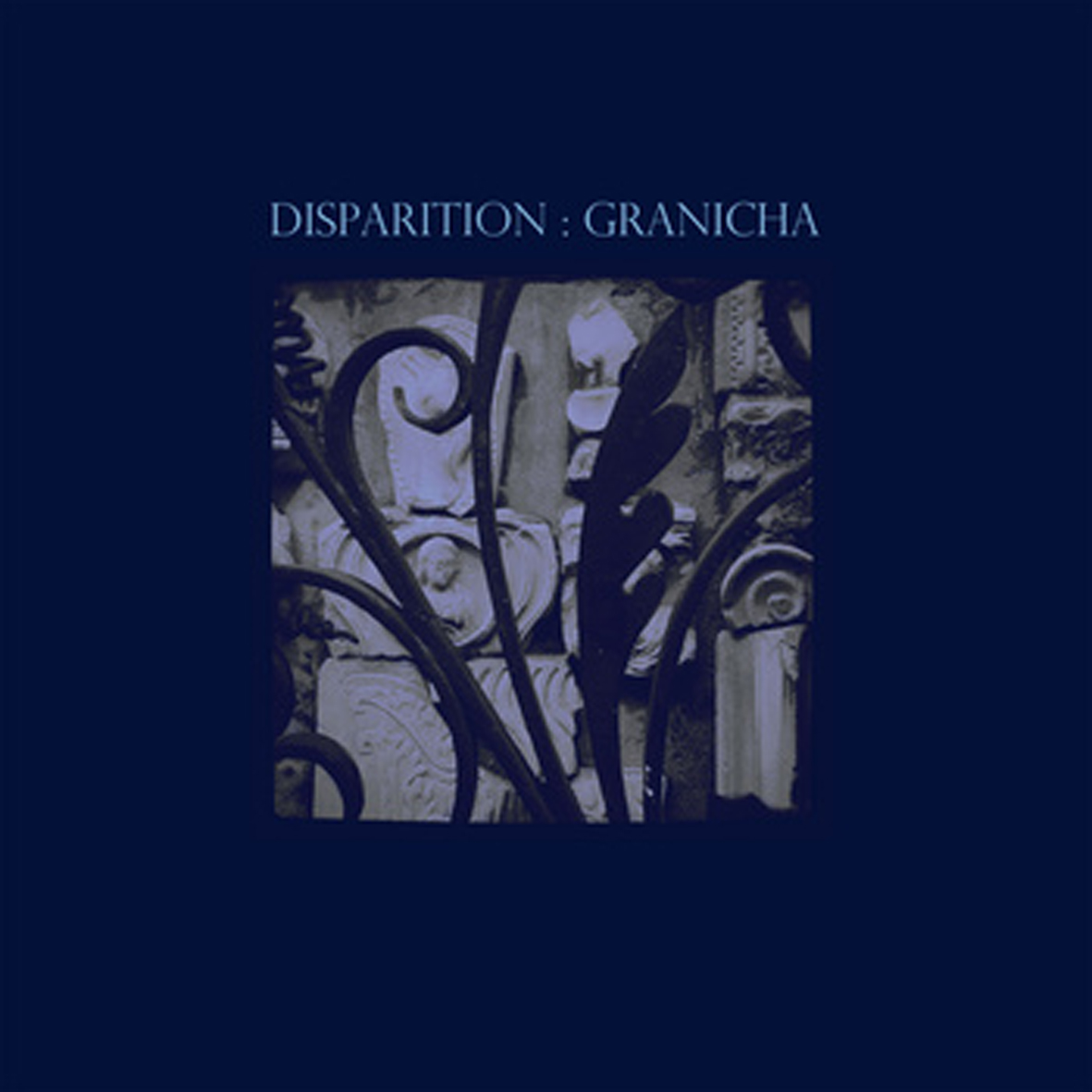Disparition, "Granicha"

Disparition is the solo project of Brooklyn composer Jon Bernstein, who is best known as the man behind the music for Welcome to Night Vale.  Most of his previous non-Night Vale work has been in the ambient/ambient-techno veins, but this latest release is a wildly ambitious departure, enlisting a large cast of disparate collaborators for a stylistically eclectic This Mortal Coil-style tour de force.  Clocking in at almost 2 hours, Granicha can be a bit of an overwhelming and disorienting listen, but it somehow still manages to err on the side of far too many good ideas rather than too few.
Granicha is a very difficult effort to wrap my head around for a whole host of reasons, which I suppose means that Bernstein is doing something very right: this album certainly does not suffer from lack of ambition, an unwillingness to take chances, or a rigid adherence to convention.  Sometimes conventions are in place for fairly good reasons, however, which is where Granicha occasionally enters some head-scratching territory.  For example, the lead-off "Hexe" is a very hooky, propulsive piece that is roughly in the Massive Attack vein, boasting wonderfully soulful, sensuous vocals by Valerie Evering and some very cool dub-influenced percussion.  All of the necessary components for a great single are in place and they are executed beautifully.  Bernstein had other ideas, however, as the piece dissolves midway into a clattering percussion interlude, then a brief unaccompanied violin motif, then returns to full power in darker, more psychedelic form before ultimately winding down around the 9-minute mark.  The transitions themselves are seamless and enjoyably unanticipated, but it is a little bewildering (and little cool) to see someone so intent on sabotaging their own perfectly crafted pop song.
That conflict between Jon's talent for hooks and tight songcraft and his love of epic, byzantine, proggy multi-part song structures is a curious running theme throughout Granicha.  Usually, however, it works in the reverse direction:  they are plenty of non-hooky, seemingly indulgent pieces strewn throughout the album that are unexpectedly saved by a beautiful transition into a strong melody or groove.  On a related note, I truly cannot stress how stylistically varied Granicha is, sometimes even within the same song.  The high-water water for that eclecticism is the unquestionably the 13-minute "Doggerland," which somehow manages to encompass heavy Tangerine Dream-style space music, operatic Siren-esque vocals from Marnie Breckenridge, a very cool percussion interlude, a quasi-gospel crescendo, and some kind of Flamenco/Middle Eastern guitar coda all within the same song.
Most of the fun of Granicha (for me, anyway) lies in witnessing Jon's compositional gymnastics, as it seems like he is always in danger of digging himself into a hole or hopelessly flogging an unpromising motif, only to imaginatively twist the piece into something that I genuinely like.  The downside to that, of course, is that there are quite of few stretches of Granicha that drag a bit for me (it is a nearly two hour album) even if nearly every individual piece boasts at least one passage of remarkable inspiration.  Also, I would be remiss if I did not mention the craftsmanship.  Specifically, I loved Tim Monaghan's many shifting percussion flourishes throughout the album, but in a more general sense Granicha is a production tour de force: this album is a massive, complexly structured, genre-hopping, multi-layered monster featuring everything from rappers to operatic sopranos, yet somehow it all holds together and sounds consistently assured, crisp, and vibrant.  I cannot begin to fathom how many hours this album took to assemble once the recording was complete.
Finally, Granicha contains at least two songs that I would describe as legitimate, left-field successes that sound like nothing else I have heard: "A Fire in the Distant Hills" and "Book of Arrows," both of which feature obsessively repeating quasi-poetry from vocalist Oswald Starr over a constantly shifting groove.  "Book of Arrows" is especially impressive, as Bernstein ingeniously threads Starr's vocals together with those of Henny Hendrix and Deepthi Welaratna.  The cautiously curious would probably be best served by investigating those two pieces or "Hexe," but Granicha is ultimately a fascinating complete album in a crazy-quilt, overstuffed, anything-can-happen kind of way.  While part of me certainly wishes that Bernstein had pared things down a bit or focused on a single direction, I am probably still much happier with an unpredictable and sometimes unwieldy gamble that forcibly creates its own bizarre niche.
 



